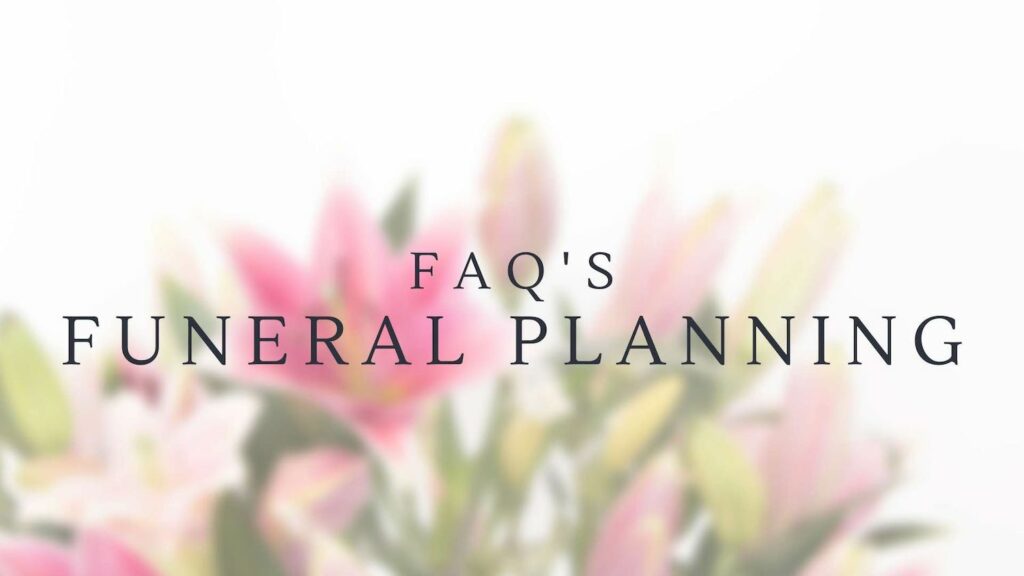Scripture challenges our perspective on death:
- “…the day of one’s death is better than the day of one’s birth.” Ecc. 7:1
- “It is better to go to a house of mourning than to go to a house of feasting, because that is the end of every man, and the living takes it to heart.” Ecc. 7:2
- “The mind of the wise is in the house of mourning, while the mind of fools is in the house of pleasure.” Ecc. 7:4
How in the world can death be better than birth, a funeral better than a party? It’s all in perspective. It’s odd how death can help bring life to the forefront, both our lives today and more importantly our eternal lives tomorrow. Perhaps in the heartbreak of losing a loved one, we are meant to stop and think on these weighty topics. According to God’s Word this pondering is a good thing and can lead us to make the most important decision of our lives. Have you made that all important decision? Have you trusted in the blood of Jesus Christ to save you from your sin and to create an eternal home with him?
I am so very sorry for the pain of being separated from your loved one. As believers in Jesus we are encouraged in knowing that we will be reunited with our brothers and sisters in Christ again. But boy can the meantime be hard, especially taking the first steps of planning a funeral. God promises to be with you in these difficult days. As fellow widows, we are here with you too—you are not alone!
Here are a few FAQ’s and things to consider as you plan this important service:
- What do I call it?
- Celebration of Life or Memorial Service – Many people prefer to redirect the service away from death to the life well lived, this is a very positive and popular approach. At the service family and friends are encouraged to share memories that the loved ones can cherish for years to come. Sharing of a person who lived a God-honoring life will leave a lasting imprint on those attending the service, spurring them on to evaluate the way they live their own lives and teaching them to number their days (Psalm 90:2). It is important to understand that it’s okay and even appropriate to also include a time of lament or moment of mourning the loss. It is normal to be sad and to acknowledge this unavoidable emotion.
- Wake – Defines as a watch or vigil by the body of a dead person before burial, sometimes accompanied by feasting or merrymaking. This is a time to show respect for the loved one or to join in the period of mourning. It is an opportunity to express sorrow and to be present in the pain.
- Funeral – Most people refer to the ceremony of the death of a loved one as a funeral. Even though celebration or memorial service feels more positive both are for the same purpose, to start the season of mourning, giving opportunity for family and friends to come together and remember the loved one that is now gone.
- Should children attend?
- Children of the family member – this decision is up to the family involved and often depends on the age of the child and/or their relationship to the loved one. At the time of my husband’s death by suicide, I chose to have all eight of my children ages 1-10 there for several reasons:
- We needed to experience this time together. I needed them, and they needed me.
- During this tragic time of death, I wanted to take the time to speak the blessing of life over my children.
- At the service they would witness the presence of God as well as the presence of their huge community. **Because I chose to speak at the service, I selected close family and friends to care for my children. This gave each child the personal attention and comfort I knew I was unable to give in that hour.**
- Children of outside family members – this decision is up to personal discretion. It is important to discuss death with children at age-appropriate times. If your child had a relationship with the loved one, perhaps bringing them to the service will allow for an opportunity to have this invaluable conversation. Prior to the death of my husband, the opportunity arose for me to take my older children to a funeral and it proved to be a helpful time of preparation.
- Should I speak? Only if you desire to do so. It certainly is not expected for the widow to speak; however, often you are the best one to comfort others. I know this sounds strange, but during the initial months of loss, God may place a special anointing over you giving you courage and boldness to speak as you ought to speak. People will marvel at your strength—this comes from God and brings glory to Him as a taste of how He will empower you moving forward.
- When should I have the funeral? There is no set time frame. Back-in-the-day, a funeral was to be within days of the death. This is no longer the case. You are the widow so you should be the one to make this decision. Delaying the funeral may be necessary for many reasons: availability of funeral director, officiator, or the schedule of family members. Allowing adequate and reasonable time to plan a meaningful service is also to be considered.
- Should my husband be cremated or buried in a casket? If this has not been discussed prior to death, it can be overwhelming. If you opt for a burial, it may help to take a trusted friend or family member with you to pick out a casket. There will be many choices and price points, all probably beyond your budget, because let’s face it, who includes funeral expenses in their day-to-day budget? Regardless of your decision, your love for your husband is not based on your selection of a pine box vs. a satin lined top-of-the-line casket, or cremation.
- What do I put on the marker? Oh my, I can’t believe I’m talking about my husband’s tombstone! Whatever you choose will be etched in stone forever so take time to decide—a favorite scripture, quote, picture, or simply the dates noting his life span.
- Is a graveside service necessary? Not at all, this is left to your discretion. Many feel the ceremony and graveside service go hand-in-hand. For me, I didn’t want my young children to associate their daddy with the grave until they were older, and it was by their choice to go.
- What should I wear? Seems like an inappropriate question to ask but choosing the right garment may boost confidence for a very difficult day. Today, anything goes—from the loved one’s favorite color, to a tropical theme to embrace happier times or the traditional all-black acknowledgement of grief—in biblical times sackcloth and ashes was the garb letting everyone know you were sad. For me, I didn’t have a black piece as that was not in my color palette but you can be sure within days that was the only color in my closet because I was oh so sad and wanted everyone to know it!
- What should I expect on the day of the funeral and days after?
- Sad and everything in between – The obvious, you will be sad no matter how hard you try to cover it up. There is also a chance you feel nothing or a sense of relief, especially if it was an extended illness that lead you to this day. You may feel empowered with new purpose to make the most of your days left on earth or you may be overcome with anger. The point is, your emotions are normal, feel them all and make sure you have a close friend or family member to listen to you in those overwhelming feelings.
- Tension – Tension may begin among family members with everyone having an opinion about even the smallest of details. You are the widow so get to make the final call.
- WHAT?! – People will say unbelievable things from downright rude to shocking none-of-your business questions. While this can be hurtful, try hard to let the comments roll off. People really don’t know what to say speak all kinds of odd things when instead they should remain silent. You will learn that, “I am so sorry” is the best comment.
- Goodbye normal – Your normal routine of life will be turned upside down. Calm morphs into what feels like chaos out of your control. It will be like this for a few months and then the dust will begin to settle over your new season of life.
- Your life on display – At the funeral and in the days to come it can feel like you are in a fishbowl with your life and his on display. Perhaps people came to the funeral only as a spectator – this can be uncomfortable especially since your husband is no longer by your side. Loneliness begins here but God is with you and will guide you along with your community of trusted friends to make the best decisions. Yes, there will be lonely days and people will be watching you closely, but as you direct your focus to God, His work in you might just lead others to Him.
- Exhaustion – The day of the funeral will be exhausting physically, emotionally, and even spiritually. Give yourself some space at the beginning and end of the day. Select someone you trust to walk by your side. If possible, record the service. You may want to watch it again in a few months or even in the years to come as you won’t be able to remember it all.
- How should I refer to my husband?
- Deceased vs. Dead – either is appropriate, choose the one that is easier to get out of your mouth. He truly has not deceased and is living eternally somewhere but that’s a bigger topic for another time.
- Late vs. Former – These can be tricky because neither feel adequate to define who he was to you. Again, choose what is easier to say when you are talking about him.
- Husband – It’s okay to just refer to him as your husband or first husband if you remarry. Of course, you are no longer married but he can still carry that title if this is more comforting.
May the Lord comfort you as only He can during this very hard time!
“Your eyes have seen my unformed substance; And in Your book were all written the days that were ordained for me, when as yet there was not one of them.” Psalm 139:16






